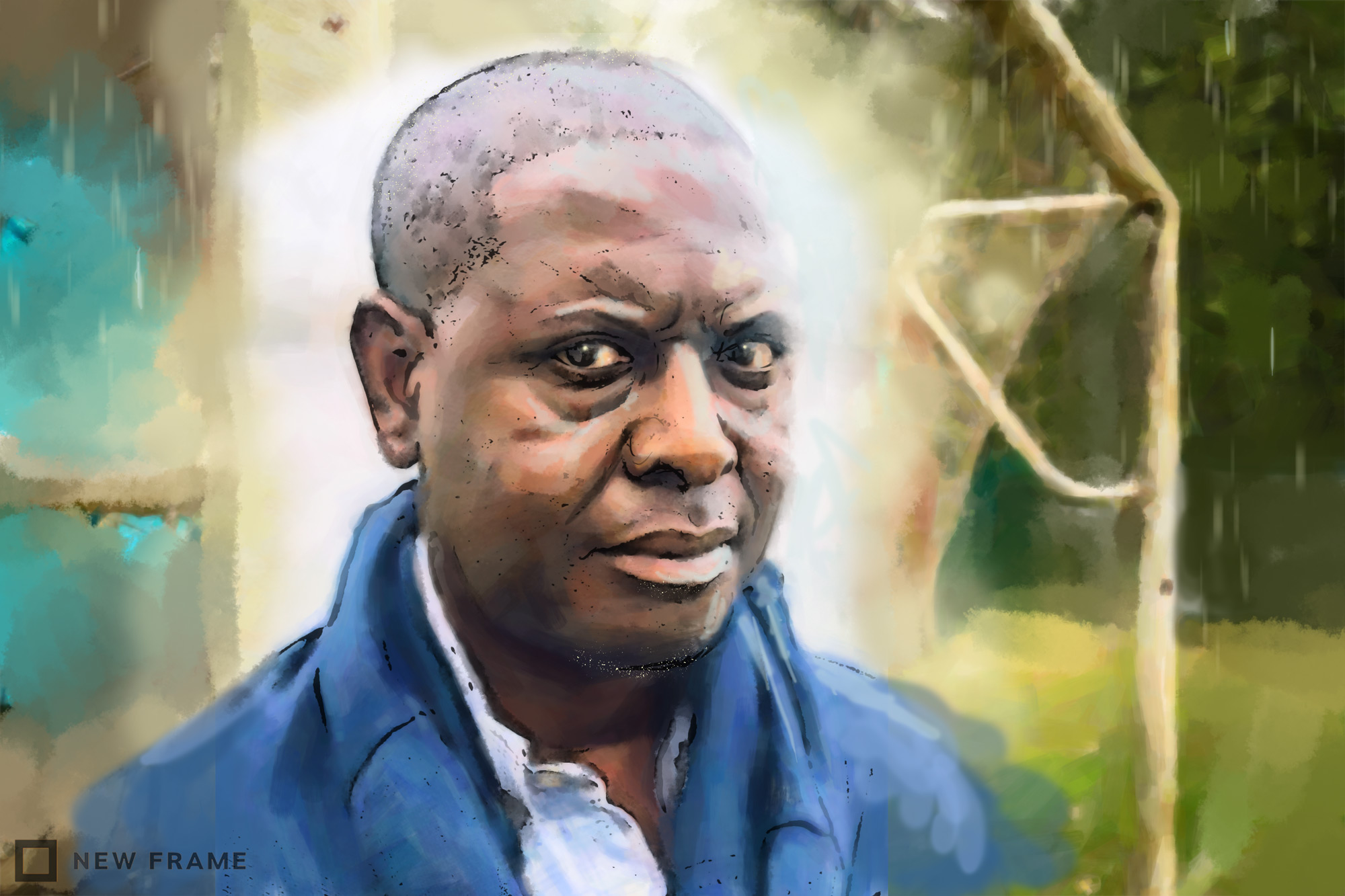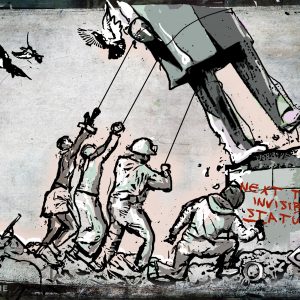Paul Beloy lambasts racism in Belgian football
Born in the Democratic Republic of the Congo, Beloy grew up in Belgium and discusses the racism he endured as a footballer in the 1970s, a problem that’s still prevalent five decades later.
Author:
24 July 2020

The 60th anniversary of the Democratic Republic of the Congo’s (DRC) Independence Day on 30 June allowed Belgium to reflect belatedly on the part it played in its former colony’s history.
In 1885, when King Leopold II took control of the territory, he claimed his intentions were pure and humanitarian. In reality, he fashioned the Congo Free State as a private fiefdom, exploiting forced labour to extract rubber, ivory and rare minerals to amass a vast personal fortune.
The monarch’s reign was as brutal as it was bloody, and he ran a decades-long propaganda war to justify his atrocities. However, in contemporary Belgium, these gruesome facts remain overlooked, if not ignored, in schools, mainstream politics and even in public discourse.
Against this backdrop, Paul Beloy immediately strikes you as a man at ease with the DRC. A supporter of the Black Lives Matter movement in Belgium, he backs those demanding the removal of Leopold II statues littered across the country. In June, some of those statues were vandalised with red paint in the northwestern towns of Ghent and Ostend, while others in Brussels were simply torn down.
“You need to understand the history,” says Beloy. “We all know what Leopold II did. But in the past, you couldn’t talk about it. What he did was abhorrent. It is also terrible what the monks did, who were sent to convert the Africans to Christianity. At the time, no one spoke or wrote about it. Even today, no one is talking about it.”
Beloy arrived in Belgium at the age of four, in 1961. His father, André Beloy, had received a scholarship and relocated from the DRC with his family to pursue a medical degree. Beloy’s father later qualified as a heart surgeon and attended to Mobutu Sese Seko, the infamous despot who refashioned the DRC as Zaire. Settled in Belgium, and with his father immersed in his studies, foster parents raised the young Beloy in Mechelen, a provincial town trapped between Brussels and Antwerp.
Related article:
Beloy quickly realised he was one of few black residents in his new hometown. In the 1960s, immigration in Belgium was mostly restricted to Southern European and Northern African countries, as well as Turkey, which boasted flexible work permits along with lenient family reunification schemes.
Today, Beloy recalls how his arrival sparked much curiosity among the locals. “Everyone called me ‘little negro’,” remembers Beloy. “Aww, a nice little negro lives in Mechelen. People came to our garden to look at little black kids who were five or six years old. They would say, ‘Look, their parents are Africans and still live in trees!’ We were a novelty.”
Dealing with racism in Belgian football
As a teenager, he stood out during football matches at school. He was invited to train at local club KV Mechelen, the last Belgian club to win a European club competition in 1989. A prodigy, Beloy proved indispensable to Mechelen’s defence before moving on to Beerschot VAC. In the late 1980s, he ended his professional career at RKC Waalwijk in the Netherlands.
In the late 1970s, while defending at Beerschot, Beloy encountered racism in a derby against cross-town rivals Antwerp. “All of a sudden, a banana was thrown at me,” recounts Beloy. “I picked it up, set it aside and went on playing. For me, there was no fuss. The next day, a newspaper published a cartoon, depicting me with a banana skin. The message was direct, it had happened. That was it, full stop. Today, all newspapers would have a field day.”
Alongside Waregem’s Giba and Beerschot’s Emmanuel Sanon, Beloy soon became a trailblazer for black players across Belgium. The three were recognisable, maybe even famous, because of the colour of their skin. Beloy’s mastery of Dutch and French, the country’s official languages, won over some of Belgium’s bilingual press. In a way, his renown insulated him from everyday racism and the putrid way the football industry operated.
“Mobutu prohibited Congolese players from playing in Belgium, but they came anyway,” says Beloy. “Agents exported the players, from Ghana and Senegal as well. Why? They were cheap labour, in terms of accommodation, wages and education. They were paid well by African standards, but less so by Belgian standards.
“In fact, a lot of players were approached in a deceitful manner. They arrived at Antwerp’s central railway station, were lodged at a hotel and then they toured the local clubs. If one player made it, the rest were often abandoned because the agent had done his job. Those left behind had to fend for themselves. It is another form of racism, and cheap human trafficking.”
Related article:
In 1992, Beloy retired. But he says racism in Belgian football – and wider society – is still endemic. He cites as examples Beveren, which was famous as a hub for Ivorian players a decade ago; Romelu Lukaku’s journey in elite football; the abuse youth players of foreign ancestry endure on a weekly basis; and the Belgian football association’s glass ceiling at management level. The association doesn’t even count the number of racism complaints it receives.
Today, Beloy warns of a far more insidious “structural, intellectual racism”.
He says: “Racism is even more difficult to highlight. It is ingrained. It is about the old boys’ network. To get a break, you need to be like Vincent Kompany. He rises above the fold. Without the name and the merit of Kompany, it is very hard to get anywhere at policy level. That is where you get to call the shots. You can appoint a few pliants to tick your diversity numbers or you simply ignore it.”
Calls for removing statues
The former Manchester City captain symbolises the country’s golden generation, which eliminated Brazil on their way to a bronze medal at the 2018 Fifa World Cup in Russia. The team demonstrated the merits of a multicultural society.
In Russia, the Belgian squad counted eight players of African descent, including Kompany, Lukaku, Dedryck Boyata, Youri Tielemans and Mitchy Batshuayi, all of whom have Congolese roots. Unfortunately, the national team remains an exception. It hasn’t helped in vanquishing local prejudices on integration and multiculturalism. Nowhere in Belgian society has the team’s mix of colours and ethnic backgrounds been repeated harmoniously.
Pierre Kompany, Vincent’s father, is an anomaly. In 2018, he was elected Belgium’s first black mayor in Ganshoren, a village on the outskirts of Brussels. Beloy shares Kompany’s view on the removal of Leopold II statues. They can be moved to a museum and the Belgian royal family should also issue an official apology. This, Beloy feels, is the only way for Belgium to make amends.
Related article:
“We have to take into account the hindsight that we have today,” insists Beloy. “It is part of an evolution. We are talking about history. Leopold and Hitler did the same thing. Leopold did it for economic reasons, Hitler for racial reasons. So, we say, this situation can’t continue. It will help to improve the lot of minorities.”
After a moment’s pause, Beloy asks: “What would you do if there was a statue of Hitler in your town?”
The little boy who endured the brutal realities of racism in Belgium, rising above it to become a celebrated football player, is still waiting for an answer from his countrymen.



